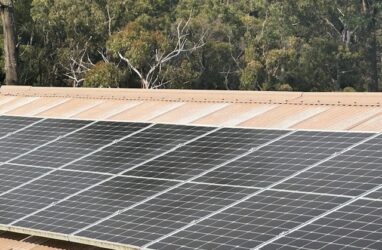Feed aggregator
BRIEFING: AI and emissions – energy demand, efficiency, and some ambiguity, IEA says
Investing in climate adaptation is not just good for the planet, it’s good business | William Ruto and Patrick Verkooijen
Climate denialism should not blind investors and governments to the very real opportunities to be found in financing solutions
Among the many shocks currently facing the international development community is the new direction of the US administration on climate, and the implications worldwide for mitigation and adaptation efforts.
This is not uncharted territory. While a withdrawal from the Paris climate agreement is undoubtedly a setback, it no longer carries the same level of disruption as it did. The global community has become more resilient and will continue to advance climate action.
Continue reading...Papua New Guinea voluntary REDD+ ban to be lifted “immediately”, minister says
Australian nature tech accelerator announces recipients of new funding round
Gas boiler fittings outnumbered heat pumps by 15 to one in UK last year – report
Poorer households shut out of heat pump market and grants should be increased to speed up rollout, thinktank says
Gas boiler fittings outnumbered new heat pump installations by more than 15 to one last year, and only one in eight new homes were equipped with the low-carbon alternative despite the government’s clean energy targets.
Poorer households are also being shut out of the heat pump market as the grants available are inadequate and should be increased, according to a report by the Resolution Foundation thinktank.
Continue reading...Ted O’Brien’s mixed messages and modelling backtracks: Coalition may not cap renewable power
The post Ted O’Brien’s mixed messages and modelling backtracks: Coalition may not cap renewable power appeared first on RenewEconomy.
Carbon market infrastructure outfit names new MD
First big battery signed up to deliver “baseload” renewables comes to life on the grid
The post First big battery signed up to deliver “baseload” renewables comes to life on the grid appeared first on RenewEconomy.
Going nuclear will decimate jobs in regions first, stop billions in new investment
The post Going nuclear will decimate jobs in regions first, stop billions in new investment appeared first on RenewEconomy.
Callide extension gives a small glimpse of Dutton’s polluted future
The post Callide extension gives a small glimpse of Dutton’s polluted future appeared first on RenewEconomy.
BRIEFING: Expect changes to industrial carbon pricing, if not scrapped outright post Canadian-election -webinar
Energy Insiders Special: Turbines and batteries – GE Vernova’s plans to help electrify Australia
The post Energy Insiders Special: Turbines and batteries – GE Vernova’s plans to help electrify Australia appeared first on RenewEconomy.
US renewable fuels producer inks offtake deal with SAF accelerator
Texas bill would prohibit GHG emissions tracking
Good boy or bad dog? Our 1 billion pet dogs do real environmental damage
Greens to leverage Snowy Hydro to make rooftop solar PV available for seven million renters
The post Greens to leverage Snowy Hydro to make rooftop solar PV available for seven million renters appeared first on RenewEconomy.
Rooftop solar: Have the “poor” really subsidised the “rich” in Australia?
The post Rooftop solar: Have the “poor” really subsidised the “rich” in Australia? appeared first on RenewEconomy.










